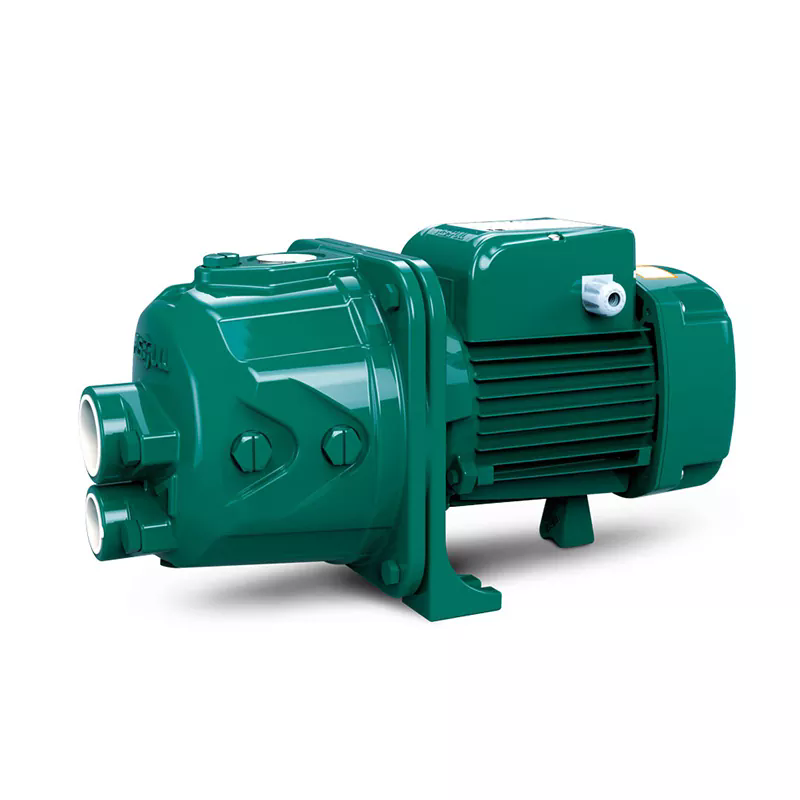The Essential Guide to Household Water Pumps: Choosing the Right Pump for Your Home
2024-11-01
Household water pumps are essential devices that help move water from one place to another in residential settings, making water accessible for daily activities, maintaining pressure in plumbing, or even irrigating gardens. From boosting water pressure in the shower to supplying water to a distant part of the house, household water pumps are versatile solutions for various water-related needs.
What is a Household Water Pump?
A household water pump is a mechanical device designed to move water through pipes or hoses. These pumps come in a range of sizes, types, and capacities, tailored to meet specific needs. They work by creating a vacuum that pulls water into the pump chamber and pushes it through the plumbing system. Household water pumps can be used in various applications, from drawing water from a well to boosting the pressure of the municipal supply.
Types of Household Water Pumps
There are several types of water pumps commonly used in households, each serving a unique purpose:
1. Booster Pumps: These pumps are ideal for households with low water pressure. Booster pumps increase the water pressure, providing a steady and powerful flow, particularly beneficial for showers and taps.
2. Submersible Pumps: Typically used in wells or water tanks, submersible pumps are installed below the water surface. They are efficient, quiet, and can handle significant water flow, making them suitable for deeper sources like wells.
3. Centrifugal Pumps: Centrifugal pumps are commonly used for transporting water over short distances. They work by spinning an impeller to create centrifugal force, which pushes water through the pipes.
4. Jet Pumps: Used primarily for shallow and deep wells, jet pumps draw water from underground sources. They work by creating a vacuum in a pipe and can be installed above or below the water source.
5. Sump Pumps: These pumps are often used in basements to prevent flooding. When water accumulates in a sump basin, the pump automatically activates and removes the water to prevent damage.
6. Utility Pumps: Utility pumps are multipurpose pumps that are portable and can be used for various household applications, including draining water, filling tanks, and more.
Factors to Consider When Choosing a Household Water Pump
Choosing the right household water pump depends on several key factors:
1. Water Source: Determine the source of the water—well, rainwater tank, or municipal supply—as this will influence the type of pump needed. For example, submersible pumps are better for wells, while booster pumps are ideal for boosting low municipal water pressure.
2. Flow Rate: Flow rate, measured in gallons per minute (GPM), is crucial to meet your water needs. High-demand applications, such as irrigation or multiple water outlets, require pumps with a higher flow rate.
3. Pressure Requirements: Some applications, like showers and sprinklers, require higher water pressure. A booster pump can help in cases where the water pressure from the main supply is insufficient.
4. Energy Efficiency: Pumps with energy-efficient motors reduce electricity consumption, which can be a major consideration in homes where pumps operate continuously.
5. Noise Level: Some pumps, especially centrifugal and booster pumps, can produce noticeable noise. Opt for low-noise models if the pump will be near living spaces.
6. Pump Size and Portability: Ensure that the pump fits in your designated space. Additionally, portable pumps are convenient if you plan to use them in different parts of the house or for various purposes.
Benefits of Household Water Pumps
Household water pumps come with several advantages that make them indispensable in residential settings:
1. Increased Water Pressure: Pumps ensure consistent water pressure, which is crucial for modern appliances and an enjoyable shower experience.
2. Convenient Water Access: For homes using well water or distant water sources, pumps make it possible to draw water as needed, even at remote locations.
3. Efficient Irrigation: Water pumps make garden and lawn irrigation easy, allowing you to save time while ensuring adequate watering for plants.
4. Flood Prevention: Sump pumps are essential for homes in flood-prone areas, as they automatically remove excess water from basements or low-lying areas.
5. Versatile Applications: From filling a pool to draining water after cleaning, household water pumps are versatile tools that can handle various water-related tasks.
Maintenance Tips for Household Water Pumps
Proper maintenance ensures that household water pumps perform efficiently and have a longer lifespan:
- Regular Inspections: Check the pump for wear, leaks, and damage, especially after extended periods of use.
- Clean Filters and Strainers: Pumps often have filters to prevent debris from entering. Cleaning these regularly will keep the pump running smoothly.
- Lubricate Moving Parts: If the pump has moving parts that require lubrication, apply oil as recommended by the manufacturer to prevent wear.
- Check Seals and Connections: Loose or damaged seals can reduce efficiency and cause leaks. Inspect and tighten or replace as necessary.
- Avoid Running Dry: Pumps are designed to work with water, so avoid running them without water, as this can cause overheating and damage.
Conclusion
Household water pumps play an invaluable role in modern homes, providing convenience, efficiency, and improved water access. Whether you need to boost water pressure, irrigate your garden, or prevent basement flooding, there is a pump suited to your requirements. By selecting the right pump and following a simple maintenance routine, you can ensure reliable performance and long-term benefits for your home’s water needs.



